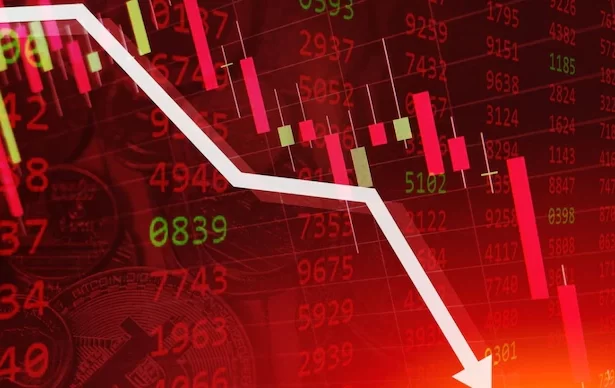Shares of Avenue Supermarts, the parent company of DMart, experienced a significant drop of 9.3% in early trading on Monday, reaching a low of Rs 4,143.60 on the Bombay Stock Exchange (BSE). This sharp decline was triggered by disappointing second-quarter earnings that failed to meet market expectations. Here’s an in-depth look at the factors contributing to this downturn and what it means for investors.
Disappointing Q2 Earnings Report
DMart reported a year-on-year (YoY) profit increase of 8% for the second quarter, but this was overshadowed by a more than 12% decline in profit after tax compared to the previous quarter. The company’s total revenue rose to Rs 14,050.32 crore, up 14% from Rs 12,307.72 crore in the same quarter last year. Despite this revenue growth, investors and analysts anticipated a stronger performance, leading to widespread disappointment.
Impact of Rising Competition
A crucial factor contributing to DMart’s stock decline is the intensifying competition from the burgeoning “quick commerce” sector. Online grocery platforms that offer fast delivery services have begun to encroach on it’s market share, particularly in urban areas. This shift in consumer preference is posing a challenge to it’s traditional retail model.
Brokerage Reactions and Downgrades
Following the earnings report, several prominent brokerage firms downgraded DMart’s stock and slashed their target prices. Here’s how some of the major brokerages responded:
JPMorgan: Neutral Rating with Target Price Cut to Rs 4,700
JPMorgan downgraded DMart from “Overweight” to “Neutral,” lowering its target price from Rs 5,400 to Rs 4,700. The firm highlighted concerns over rising operational costs and stiff competition from online grocery platforms, which have adversely impacted performance, especially in larger cities.
Morgan Stanley: Underweight Rating with Target Price of Rs 3,702
Morgan Stanley took a more bearish stance, downgrading DMart from “Overweight” to “Underweight” and significantly reducing its target price from Rs 5,769 to Rs 3,702. The brokerage pointed out that both sales and profit margins were weaker than anticipated, raising concerns about DMart’s ability to achieve its ambitious 20% growth target amid increasing competition.
Nuvama: Hold Rating with Target Price Adjusted to Rs 5,040
Nuvama maintained a “Hold” rating but lowered its target price from Rs 5,183 to Rs 5,040. The firm noted a weaker performance from DMart’s existing stores, with a sales growth of only 5.5% compared to 9.1% in the previous quarter. Additionally, the growth of DMart’s online grocery service, DMart Ready, has also slowed, further disappointing investors.
Prabhudas Lilladher: Hold Rating with Target Price of Rs 4,748
Prabhudas Lilladher downgraded DMart from “Accumulate” to “Hold,” reducing its target price from Rs 5,168 to Rs 4,748. The firm emphasized that the company’s sales are being adversely affected by online competitors, particularly in metro areas where store growth has stagnated.
Investor Takeaway
The message for retail investors is clear: It is facing mounting pressures from rapid competition in the grocery sector and rising operational costs. While the company continues to grow, it is not meeting the expectations set by analysts, prompting multiple downgrades from brokerages. If you hold DMart shares, it may be prudent to observe how the company addresses these challenges in the upcoming quarters before making significant decisions.
For potential investors considering buying DMart shares, it’s essential to monitor the company’s competitive strategies against online grocery platforms and its effectiveness in managing costs. As of 10:55 am, DMart shares were trading 7.86% lower on the BSE at Rs 4,212.90, reflecting market sentiment in response to the recent earnings report.
The decline in DMart’s stock price underscores the challenges the company faces in a rapidly evolving retail landscape. With increasing competition and disappointing earnings, investors will need to stay vigilant and assess how it adapts to maintain its market position and growth trajectory.
Furthermore, how the company navigates these turbulent waters will be critical in determining its long-term viability and investor confidence. Stakeholders should remain proactive and informed as they monitor it’s performance in the upcoming quarters.


